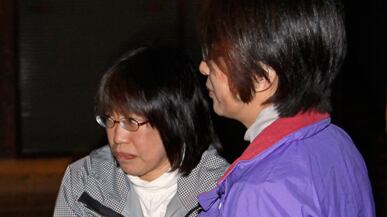Japan has been struck with so many aftershocks since the devastating magnitude 9.0 earthquake on March 11 that people are reporting “earthquake sickness,” a feeling of dizziness, anxiety, and the sensation that the ground is shaking when it isn't. Dr. Hideaki Sakata, director of the Mejiro University Clinic, compares the phenomenon to the feeling of swaying when you step off a boat onto solid ground. As people worry about being caught in a strong aftershock, many have downloaded cellphone apps that receive messages from a quake warning system that broadcasts seconds before a shock. It's not unusual to see nearly everyone in a restaurant or train suddenly check their phones at once. There have been 400 aftershocks of magnitude 5.0 or greater in northeastern Japan since March 11, which is as many sizable quakes as Japan normally experiences in two and a half years. Geologists say the frequency of aftershocks is declining, but will remain unusually high for five to 10 years and could include a quake as high as magnitude 8.0.
Read it at The New York Times





